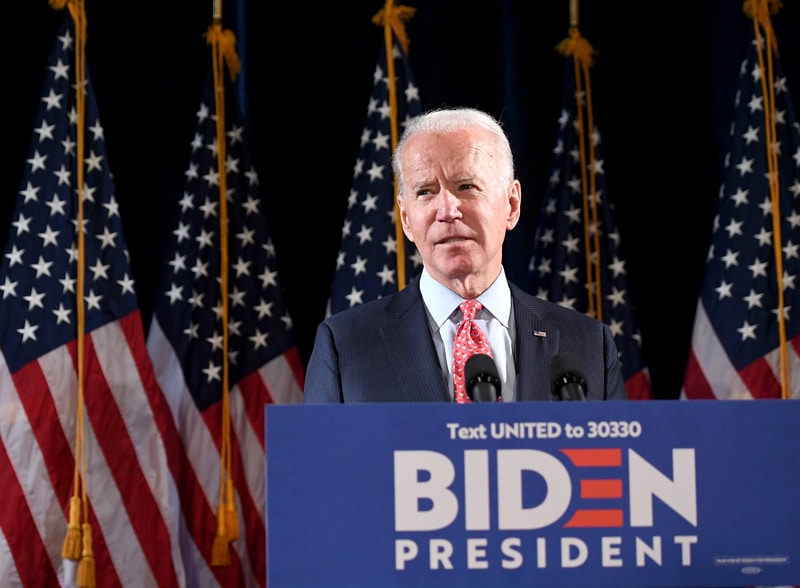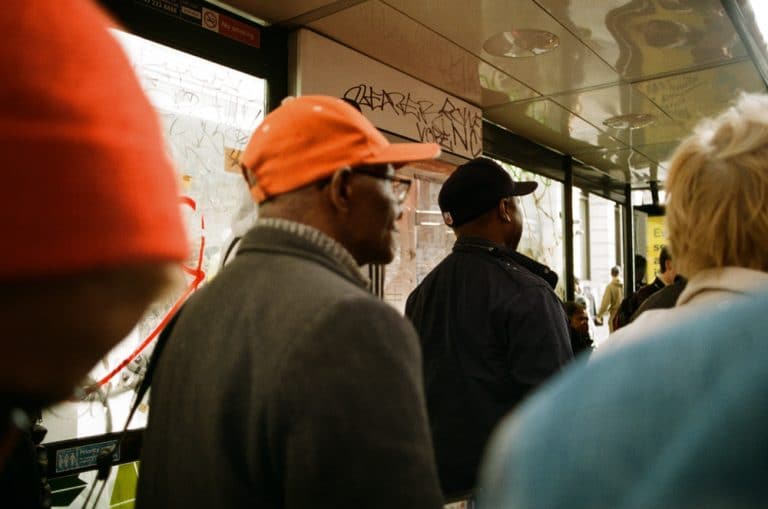How is the coronavirus pandemic affecting the 2020 Democratic primaries?
COVID-19 is throwing a wrench in the already-dramatic 2020 Democratic presidential race in the US. With a slew of states postponing their election dates and the candidates unable to maintain their presence on the campaign trail, the road ahead becomes all the more challenging and unclear—not simply in terms of who will clinch the nomination, but also regarding the implications this turmoil will have on the election system as a whole, the morale and trust of the American people and the looming battle against President Trump in November’s general election. How exactly is the coronavirus outbreak affecting the 2020 Democratic primary election?
Postponed primary dates
As the spread of the COVID-19 became an imminent health threat to people across the US, 10 states and territories have announced that they will postpone their primary dates—Connecticut, Delaware, Georgia, Indiana, Kentucky, Louisiana, Maryland, Ohio, Puerto Rico and Rhode Island—and more are expected to do the same. Six of these states will join the five already scheduled for 2 June, making this date a second Super Tuesday of sorts, with an expected 822 delegates up for grabs on that day.
These changes in scheduling and the transition of the nation into a state of emergency seem to be having significant implications on the race. While former Vice President Joe Biden secured a seemingly insurmountable lead over Vermont Senator Bernie Sanders (having won 1,214 out of the 1,991 delegates needed to win the nomination compared with 910 won by Sanders), Biden’s momentum seems to be declining.
Joe Biden disappeared
It began with Biden recklessly urging Americans not exhibiting symptoms to go out and vote on the last date of primaries back on 17 March (a move for which he received significant backlash). Then, as the US started morphing into one of the world’s epicentres of the pandemic and shelter-in orders or recommendations were issued across the country, Biden all but vanished from the public eye for days. With Trump making frequent (if obnoxious and bafoonish) addresses to the nation on television, Biden’s silence became all the more deafening.

Over the last couple of days, Biden has tried to resuscitate his position; he addressed voters from his basement in Delaware and then gave a televised interview on CNN. Both appearances, however, were underwhelming and largely uncovered by mainstream news outlets. The former VP is facing pressure to step up his game by both voters on the ground and Democratic donors and party leaders who still view him as the only viable nominee at this point.
Bernie Sanders made a point
All the while, Senator Sanders has been galvanising his base of supporters, making the case that universal healthcare and social safety nets for low and middle-income people are absolutely crucial in order to avoid an utter collapse of the nation. Sanders has been holding frequent video conference calls with various leaders and experts, which are live-streamed on social media and have so far garnered millions of views. And although a great many voices in Democratic circles argue that the responsible thing to do would be for Sanders to drop out and endorse Biden, it seems that Sanders’ presence on the scene injects much-needed optimism and energy into young Americans at the darkest of times and crucially centres the conversation around the benefit of the people as opposed to the welfare of corporations.
It seems that the significant upheavals in the primaries have their pros and cons. On the positive side (if one can use the term positive under the circumstances), postponing the primaries and clustering many of them in one day gives residents of more states an opportunity to have a real voice in determining who the nominee will be. Delaying the voting dates also means that polling stations wouldn’t have to be randomly and promptly shut down as a result of the virus, which was the case in Arizona on 17 March and proved to be an absolute disaster.
While announcing that over a third of polling locations in Maricopa County, AZ will be closed, the Election Day Director says "I'm sorry, I can't do this." and walks off the podium. Notice his nervous demeanor. 🤦♀️🤦♀️🤦♀️
— Fiorella Isabel (@FiorellaIsabelM) March 14, 2020
pic.twitter.com/X3AA995MaO
Yet, the blunt manner in which the race was brought to a halt and the uncertainty prevailing ever since arguably hampered the sense of urgency and dedication that characterised the primaries so far. Voters are in survival mode right now, and may, understandably, pay less attention to the Democratic race, despite the fact that four more years of Trump could exacerbate an already dire situation for most Americans. Furthermore, Biden’s wobbly appearance and his failure to position himself as a source of hope and leadership in contrast to Trump severely injure his candidacy and lower his already slim chances of being able to unseat the President in November.
Finally, this unexpected turn of events shines a spotlight on the serious flaws in our election system, such as the absurdity of spreading out the primaries over months through a process that all but deprives millions of voters of voting their conscience or even participating in the race at all. It also highlights the urgent need to modernise the system and make voting by mail (an option currently offered in a handful of states) a viable possibility for all Americans.
As we battle the grave difficulties brought on by this pandemic, let’s remain engaged in this fateful race and not lose sight of what’s at risk. Now more than ever we must hold our leaders accountable to the task they’ve been entrusted with—caring for the public they represent.





